Hi guys, in this article let us see, which one is better Ethereum or Solana? by comparing their features and functionality.
Let's get started 🚀

Let's explore the features of both Ethereum and Solana...
What is Ethereum?
Ethereum is an open-source blockchain with a smart contract functionality.
The difference between Ethereum and Bitcoin is the fact that Bitcoin is nothing more than a currency. In contrast, Ethereum is a ledger technology companies use to build new programs. Both Bitcoin and Ethereum operate on “blockchain” technology, however, Ethereum's is far more robust.
Ethereum makes it possible for any developer to build and publish next-generation decentralized applications.
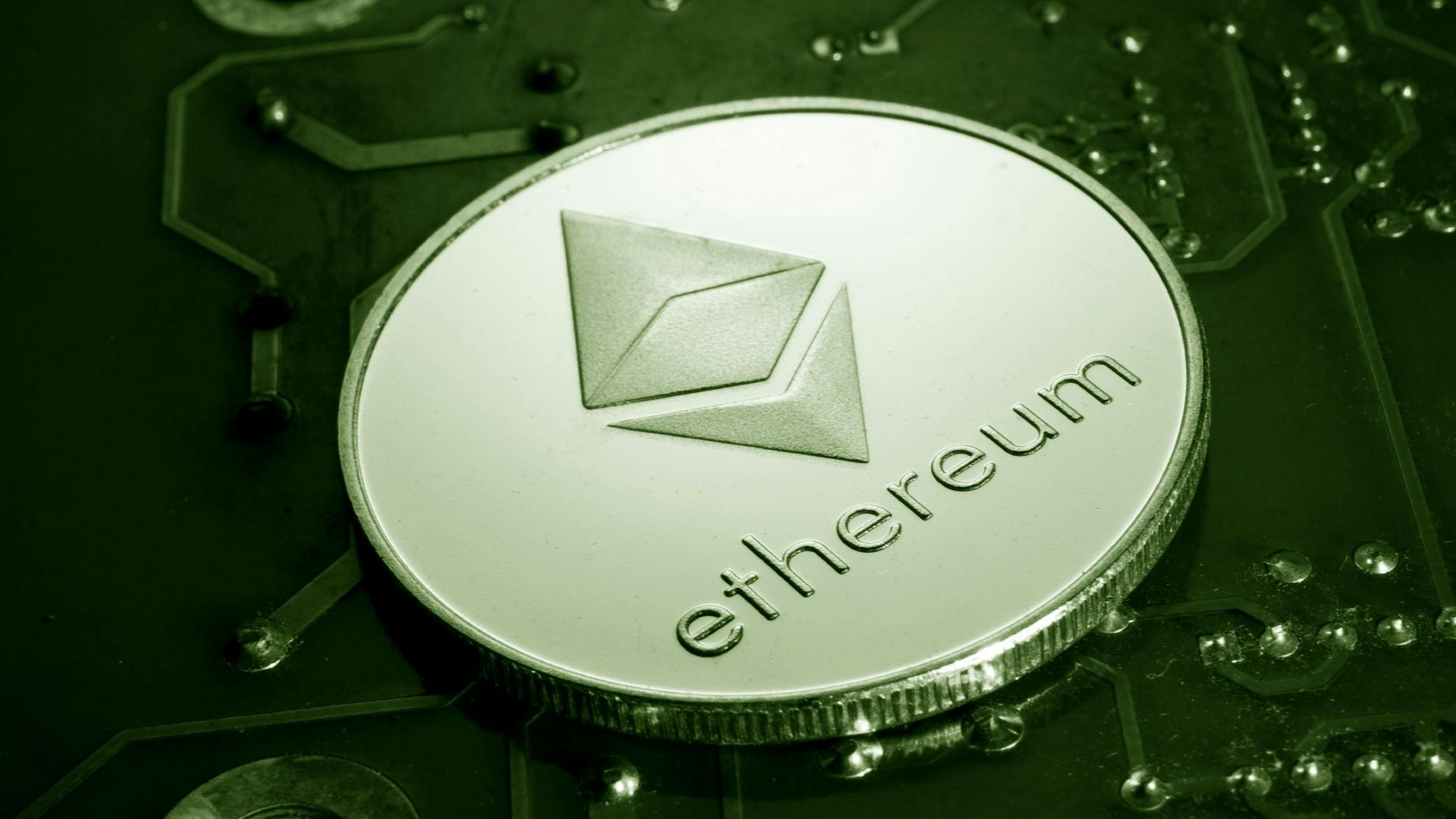
Ethereum can be used to codify, decentralize, secure, and trade just about anything: voting, domain names, financial exchanges, crowdfunding, company governance, contracts and agreements of the most kinds, intellectual property, and even smart property thanks to hardware integration.
What is Solana?
Solana is a high-performance decentralized blockchain built to enable the scalability of user-friendly applications. Solana is thought to have one of the fastest-growing ecosystems in the world, with thousands of projects spanning Defi, NFTs, Web3, and beyond.
The Solana blockchain is best known for its lightning-fast and inexpensive transactions. Solana’s scalability ensures that all transactions remain under $0.01, and transaction speeds are as quick as 400 milliseconds per block.
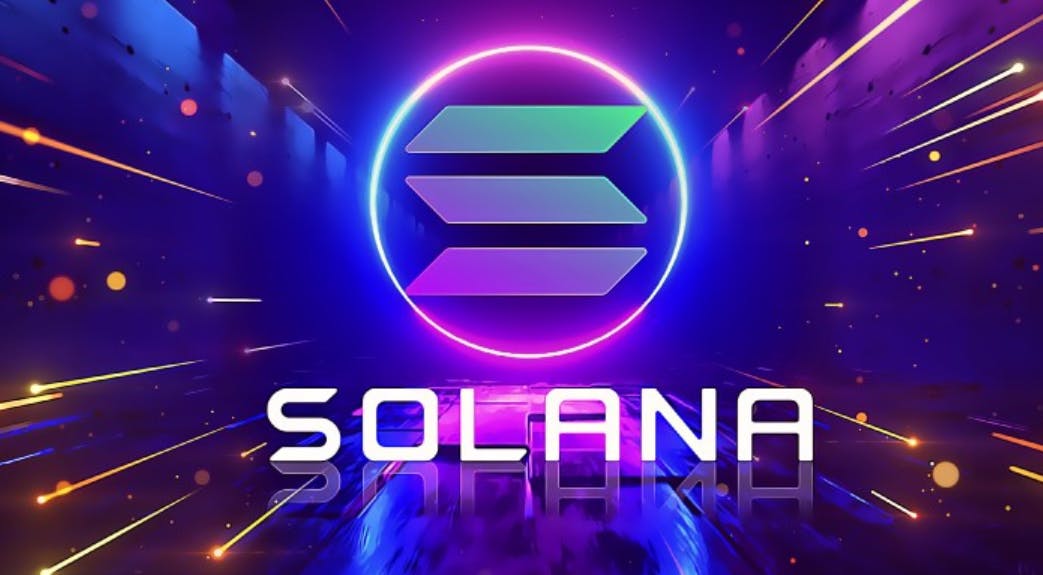
ETHEREUM VS SOLANA 🤜🏻🤛🏻
Consensus mechanism:
Ethereum utilizes a consensus mechanism called Proof of Work (PoW). This mechanism allows the decentralized Ethereum network to come to a consensus (an agreement) by enabling one party to prove to others that a certain amount of a specific computational effort has been expended. This prevents users from spending ETH they don’t have and ensures that the Ethereum chain is extremely difficult to attack or manipulate.
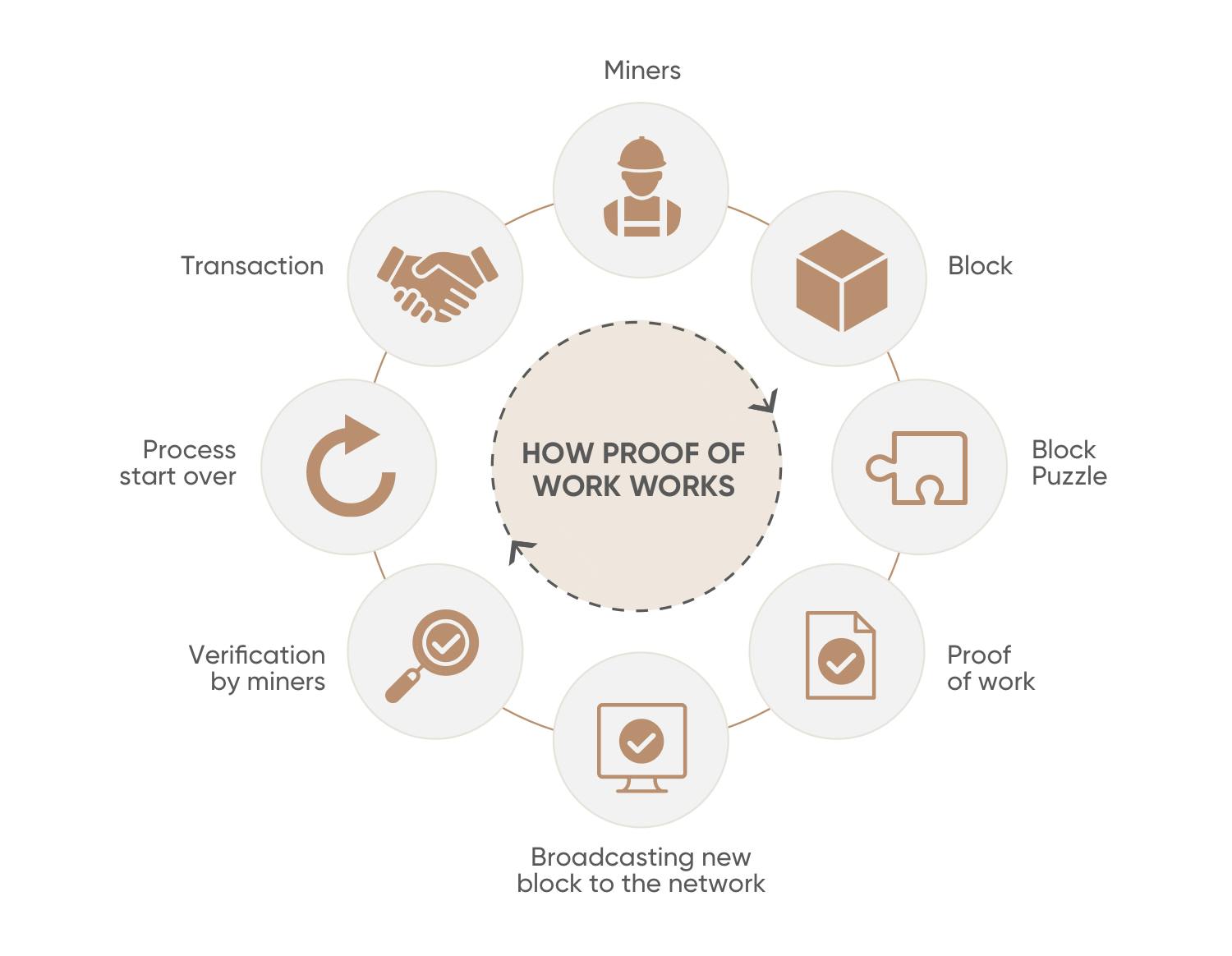
whereas, The Solana network uses a Proof of History (PoH) consensus. Using PoH allows the Solana network to create a historical record that proves an event has occurred at a specific moment in time. PoH uses a cryptographically secure function written so that output cannot be predicted from the input, and must be properly executed to generate the output.
Transaction speed:
Solana takes advantage of Ethereum’s slower network. Solana achieves such efficient transaction speeds by utilizing a centralized network, which comes with a concerning level of risk for its users as mentioned above.
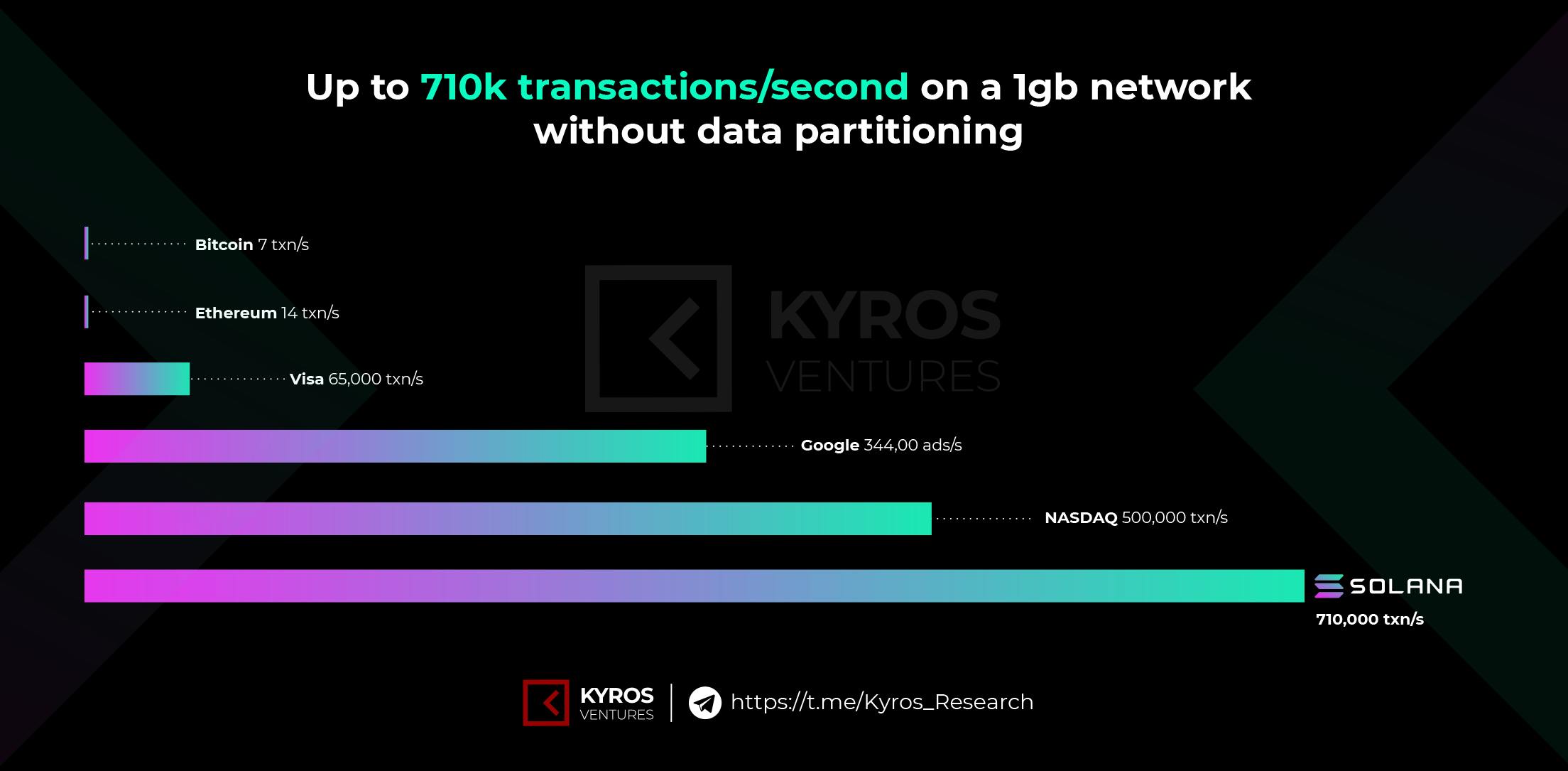 The Solana network uses a Tower Byzantine fault-tolerant (BFT), which removes the need for nodes to communicate with each other in real-time, and the result is improved efficiency. Currently, the Solana network can process approximately 50,000 transactions per second (TPS).
The Solana network uses a Tower Byzantine fault-tolerant (BFT), which removes the need for nodes to communicate with each other in real-time, and the result is improved efficiency. Currently, the Solana network can process approximately 50,000 transactions per second (TPS).
In addition to quicker transaction speeds, Solana is known for its enhanced scalability. The Solana network is scalable at its core level, meaning it does not require layer-two solutions to increase scalability.
Although Ethereum lacks the speed and cost-effective transactions when compared to Solana, it makes up for it with its mature decentralization. To compensate for this lack of scaling features at the core of its blockchain, layer-two solutions help provide enhanced scalability and throughput.
Which one is better? 🤔
Although it is unfair to compare Solana with Ethereum as Ethereum is much more mature and was created in 2014 and Solana was just developed in 2020. Deciding on Ethereum or Solana purely depends on your personal goals.
If you want to transact on the most secure blockchain, use Ethereum. The Ethereum blockchain is the more mature network and has been around since 2014, meaning it has had time to be optimized. If you only care about fast transactions and low-cost, use Solana. Solana was created in 2020 and is still trying to figure it all out, but, it offers users a more affordable option.
Currently, Ethereum has a market cap of $353 billion, whereas Solana has a current market cap of $28 million, meaning that Ethereum is the obvious choice in terms of popularity. Also, the NFT space prefers Ethereum over Solana, as a majority of blue-chip NFT projects currently live on the Ethereum blockchain.
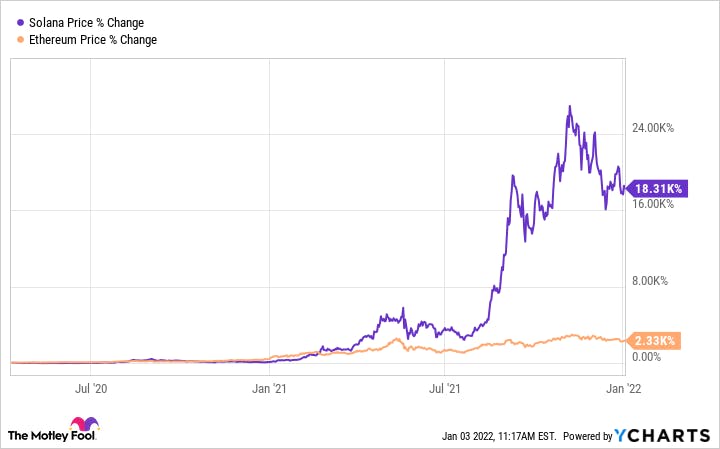
At the end of the day, both Solana and Ethereum have their list of pros and cons. So, if you’re having a difficult time deciding which blockchain is best for you, first ask yourself what your goals are.
Outro:
I hope this article was helpful and informative. I would encourage you to explore Ethereum and mainly on Solana as it seems to have a bright future and longevity. Blockchain is such a rapidly growing and interesting Industry, try learning new stuff for the future and also mainly for fun #learnforfun 😉.
related resources:
Thank you for reading 🤗
HAPPY LEARNING
-JHA